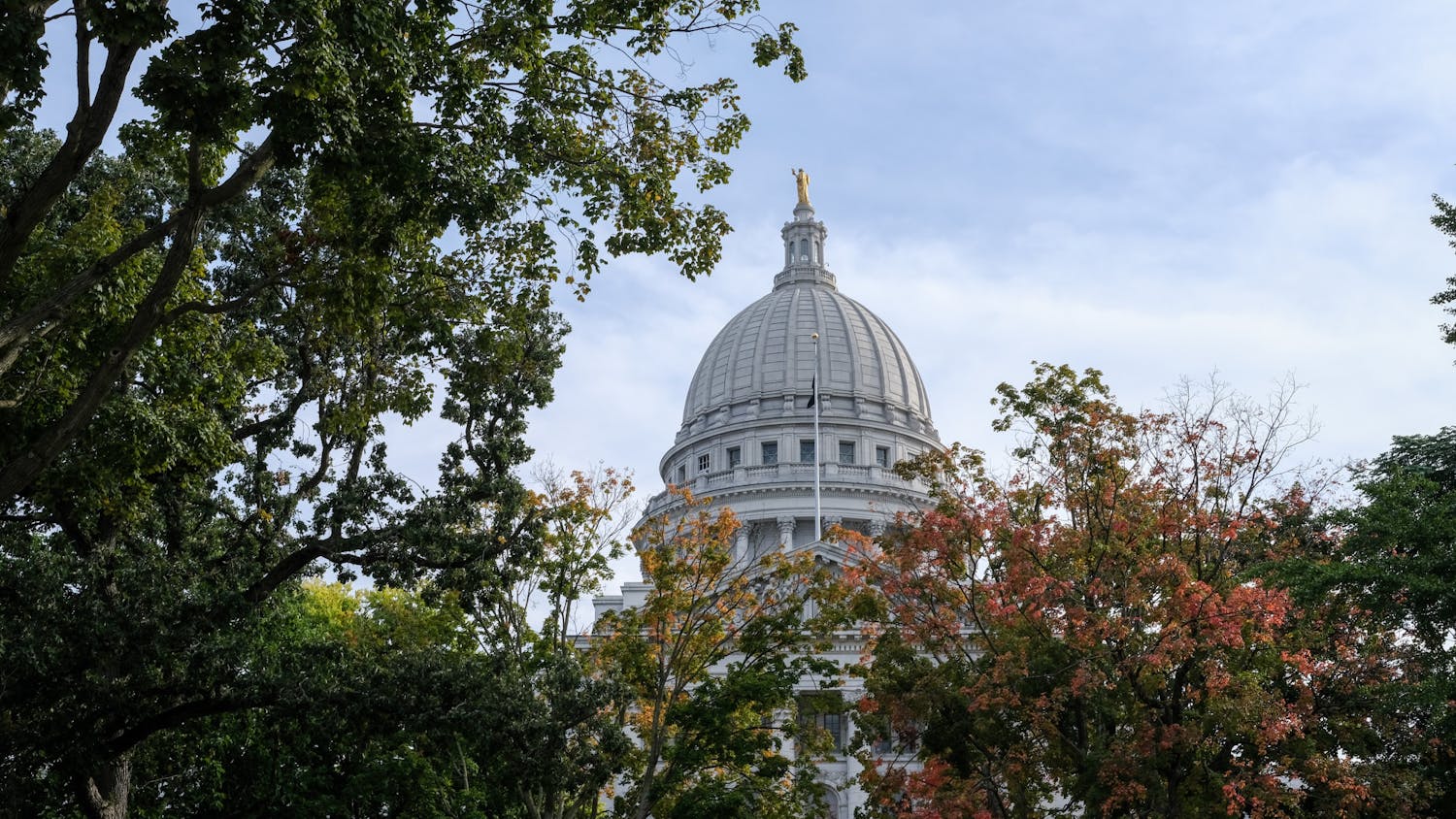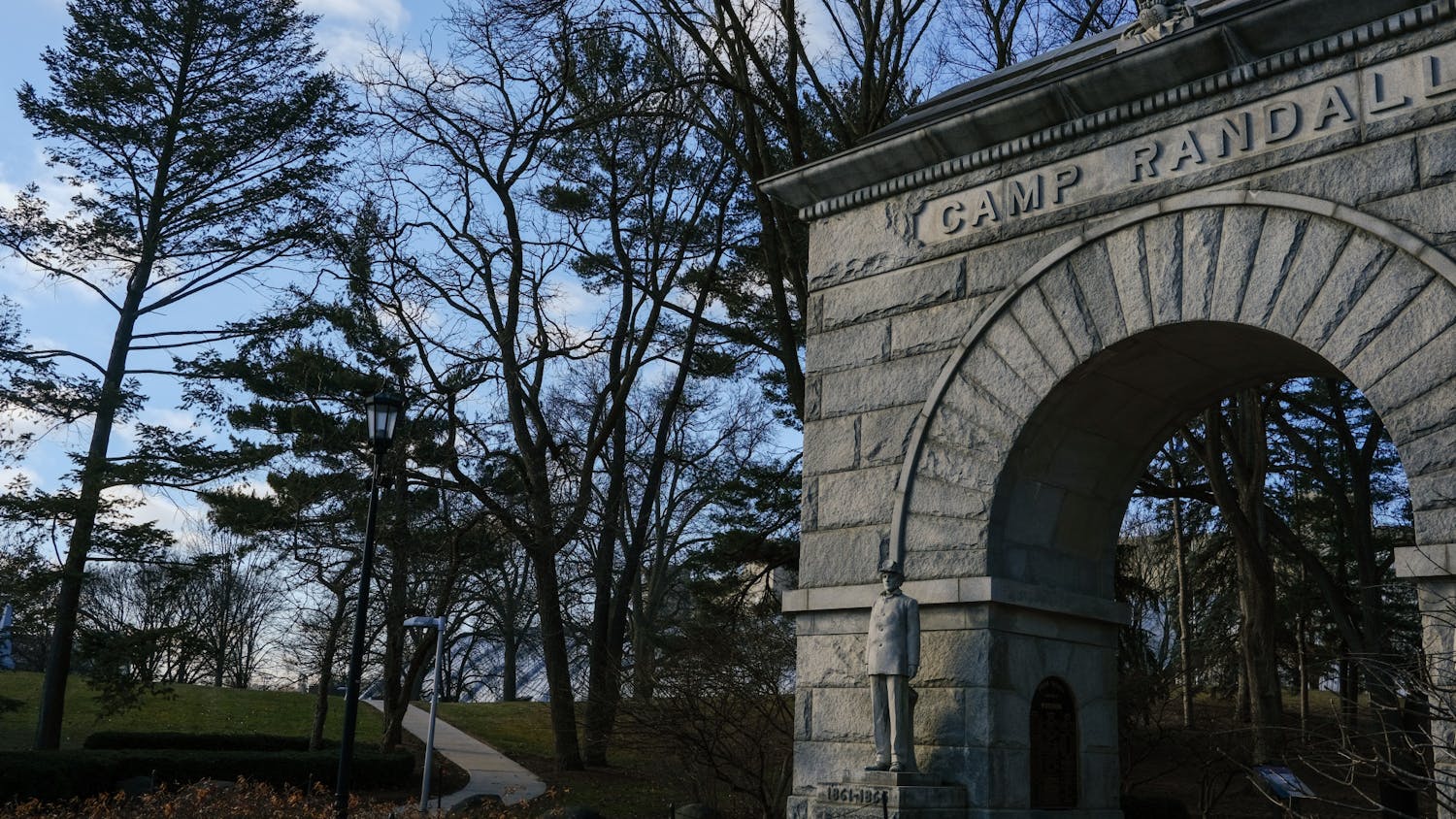As the United Nations’ Intergovernmental Panel on Climate Change issued a summary on Monday declaring “a rapidly closing window of opportunity to secure a livable and sustainable future for all,” researchers at the University of Wisconsin-Madison are investigating methods to turn plant waste into sustainable biofuel and bioproducts with renewed funding from the United States Department of Energy (DOE).
The Great Lakes Bioenergy Research Center (GLBRC) announced an additional five years of grant funding from the DOE on March 17. Funding is expected to reach $27.5 million this year, with a ceiling of up to $147.5 million over the next five years, according to a university press release. The GLBRC was created in 2007 by the DOE and researches the creation of “biofuels and bioproducts that are economically viable and environmentally sustainable,” according to their website.
Dr. Steven Ackerman, a professor of atmospheric and oceanic sciences and UW-Madison’s vice chancellor for research and graduate education, explained the value of the GLBRC’s work and the significance of the DOE grant.
“GLBRC focuses on three areas of research: sustainable cropping systems, efficient biomass conversion and field-to-product integration,” said Ackerman.
Energy security, reducing greenhouse gas emissions and increasing the diversity of available “biobased” products are among the benefits of that research, he explained.
The GLBRC researches advancements in creating biofuels and bioproducts from lignocellulose, “one of the most abundant biological materials on earth,” Ackerman explained. Lignocellulose contains sugars and aromatic compounds that can be used to make fuels, solvents and other chemicals, according to Ackerman.
“The extension will allow scientists at the GLBRC to continue foundational research to enable the breakthroughs needed for the cost-effective conversion of non-food plants into low-carbon replacements for jet fuel, diesel and other fossil fuels,” said Ackerman.
Ackerman said curbing climate change will require more than avoiding fossil fuels, but also “reducing the amount of carbon dioxide and other greenhouse gasses.”
GLBRC scientists found that integrated approaches “combining bioenergy and advanced management of crop, forest and grazing lands can provide climate benefits far greater than either approach alone,” according to Ackerman.
The economic benefits from this research are myriad — the GLBRC employs over 400 staff members and creates research with widespread opportunities for biorefineries, farmers and rural communities traditionally underserved by the current fuels and chemicals industry, Ackerman said.
“[GLBRC is] helping everybody to think a little differently as to how agriculture plays into clean energy,” said Erik Iverson, chief executive officer at the Wisconsin Alumni Research Foundation (WARF). “It’s everything from immediate employment through how farmers and infrastructure around farming approach crops in a different way other than as part of the food system.”
WARF, a nonprofit technology transfer organization, helps researchers in the GLBRC identify patentable inventions, and seek patents and licensing partners for those inventions, according to Iverson. WARF also assists the three other DOE Bioenergy Research Centers across the country, he said.
“We’ve helped them patent upwards of 250 inventions … We’ve executed maybe 100 plus different license arrangements with companies and with different institutions,” Iverson said. “[WARF wants researchers] to be conducting the research identifying new inventions and then translate those into products and get them into the hands of society to improve people in the environment.”
One such invention came from Jim Steele, professor emeritus of food science at UW-Madison, and the GLBRC-funded research he conducted on lactic acid bacteria, which can contaminate ethanol production and reduce overall biofuel yields, according to a UW-Madison news post.
Steele’s research led to the establishment of Lactic Solutions, an LLC which produces genetically modified bacteria allowing biofuel producers to use fewer antibiotics and receive higher ethanol yields, acquired in 2017 by a subsidiary of Lallemand Inc., a Canadian fermentation company.
Iverson pointed to Steele’s work as an example of the collaboration between the GLBRC, WARF and commercial partnerships. The funding will help researchers continue to develop their inventions and collaborate across the four bioenergy research centers (BRCs), he said.
“The BRCs are at an inflection point of a critical mass of inventions that have been created at a point in time during the evolution of their research into translatable technologies that could be brought into the marketplace,” Iverson said. “It’s an amount of money and the continuum of research into products, but also coalescing the collaboration across the country in this effort.”
Iverson acknowledged DOE and BRC efforts in thinking on a large, bold scale, but also recognized their push toward “forcing the inter-institutional and interdisciplinary research being conducted across the country and largely in the Midwest, instead of the individual one-off scientist that is individually getting grants."
Iverson said it’s a big deal, especially for interests with big egos who are world class scientists in their own right.
“[The DOE] is demanding that they work together and collaboratively to address what are the great issues, certainly of humankind, and for the earth,” said Iverson.
Liam Beran is the former campus news editor for The Daily Cardinal and a third-year English major. He has written in-depth on higher-education issues and covered state news. He is a now a summer LGBTQ+ news fellow with The Nation. Follow him on Twitter at @liampberan.






